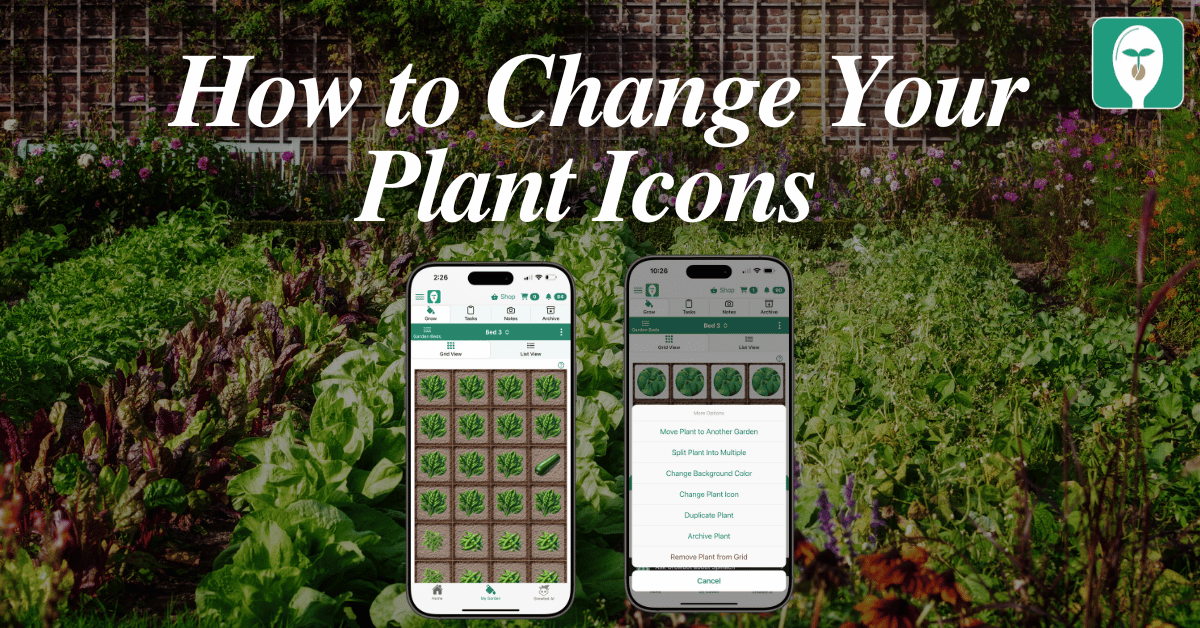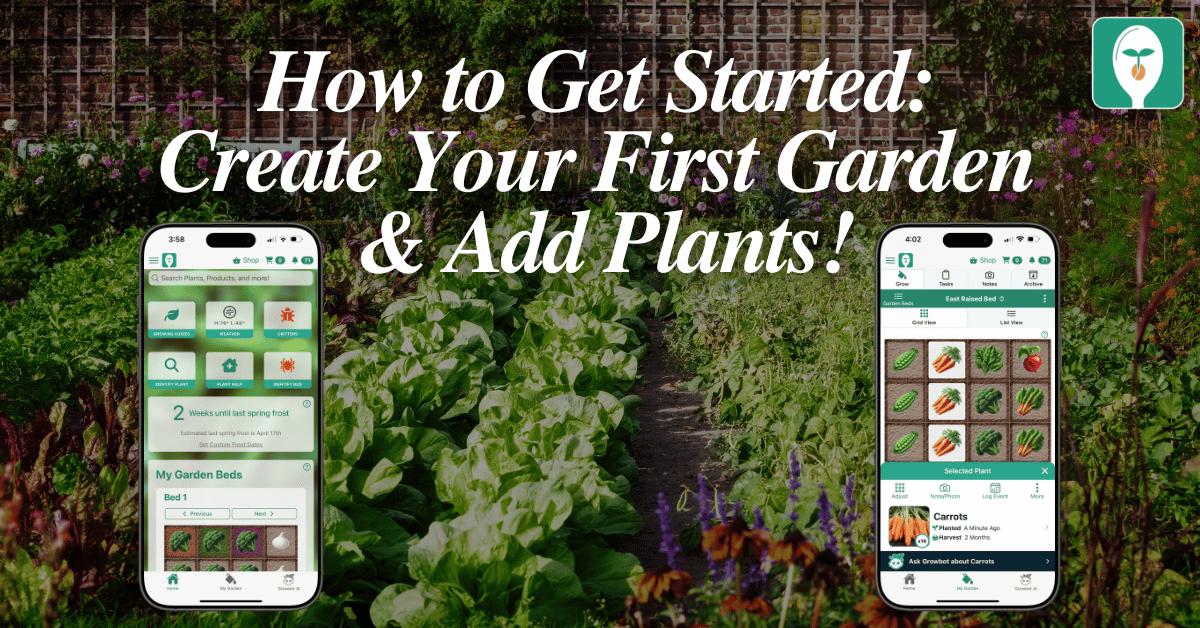How to Grow:
Lemon trees can be planted after the last spring frost in the spring and 8 weeks before the first fall frost. Trees and bushes are best planted in the spring or fall. They don’t transplant well in the heat. You can see specific dates for your location using our FREE iOS, Android, and Universal Web App.
Lemon trees should be planted about 10 feet apart from each other depending on type. We like to put them into Smart Pot containers so they can be moveable and come indoors during the colder seasons. Lemons will require full sun. Take care to notice what plants are around the area as well, see the companion plant section below. Water regularly.
Companion Plants:
Companion planting is a vital part of organic gardening. Companion plants assist in the growth of others by attracting beneficial insects, repelling pests, or providing nutrients, shade, or support. There are also plants that do not like being next to each other. Some plants get too tall and can provide too much shade for your plant. Sometimes certain plants attract the same pests, so it is important to try and separate these.
See companion plants for 100+ foods in our FREE iOS, Android, and Universal Web app!
Pests
Pests can be one of the most difficult challenges you face in the garden. We strive to grow food without the use of pesticide and luckily there are natural solutions for most of these nasty pests! The pests listed below are common ones for lemons:
Learn more about how to manage pests and attract beneficial insects in our FREE iOS, Android, and Universal Web App!
Harvesting
Lemons will be ready to harvest approximately 3-5 years after transplanting. Different varieties of lemons will be harvested at different times. They can be harvested at any point throughout the year, but the most common time is in the winter months. You will know when your lemons are ripe because they will turn yellow and be firm. They will be approximately 2-3 inches in size when ready to harvest.
Cooking & Eating!
Learn more about growing over 100 different foods, including how to manage various pests in our FREE iOS, Android, or new Universal Web App!



Carrie Spoonemore, co-founder of “From Seed to Spoon,” stands as a beacon of inspiration for gardeners and health enthusiasts alike. Her journey alongside her husband, Dale Spoonemore, in creating a platform that demystifies gardening and promotes a healthier lifestyle, has made a significant impact on individuals around the globe. Through the “From Seed to Spoon” app, Carrie has dedicated herself to empowering people to take control of their health and environment by growing their own food.
With a profound belief in the power of gardening to improve mental and physical health, Carrie’s contributions to the Seed to Spoon blog reflect her holistic approach to wellness. Her articles often focus on the nutritional benefits of homegrown fruits and vegetables, organic gardening practices, and the mental health benefits of spending time in nature. Carrie’s expertise in health science shines through in her detailed discussions on how specific plants can contribute to a balanced diet and overall well-being.
Carrie’s passion for gardening is deeply intertwined with her commitment to family and community wellness. She frequently shares personal stories of how gardening has brought her family closer together, offering practical tips for involving children in gardening activities and making it a fun, educational experience. Her writing encourages families to explore gardening as a means of spending quality time together while learning about nature and sustainability.
In addition to gardening advice, Carrie’s contributions to the blog include insights into the use of technology to enhance the gardening experience. She has played a crucial role in designing the “From Seed to Spoon” app to be user-friendly, ensuring that users of all ages and backgrounds can navigate the complexities of gardening with ease. Her vision for the app is not just as a gardening tool but as a vehicle for change, inspiring individuals to adopt a more sustainable lifestyle by growing their own food.
Carrie Spoonemore’s presence on the blog is marked by her compassionate approach to teaching and her unwavering belief in the transformative power of gardening. Her work continues to inspire a community of gardeners to pursue a healthier, more sustainable way of living, proving that with the right tools and knowledge, anyone can become a gardener and advocate for their health and the planet.







One thought on “Lemons: How to Grow and When to Plant in Your Backyard or Patio Garden!”
Of the forty cultivars of citrus I grew on dwarfing rootstock back in the early 1990s, the ‘Lisbon’ lemon was the biggest and most aggressive. ‘Eureka’, which is more of a garden variety of the ‘Lisbon’ (that produced randomly throughout the year instead of within a limited season) was just about as big and aggressive. Since they do so well in the garden, I can not imagine growing them in containers. ‘Meyer’, which was our most popular citrus (but also one of my least favorites), is likely the most productive and conducive to confinement. It also has that distinctively rich flavor.